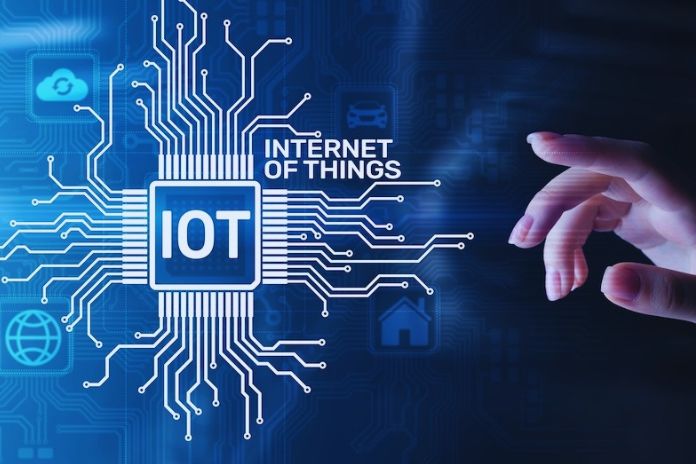The innovations linked to the birth and development of the Internet of Things have a disruptive effect within all market sectors. The ongoing revolution is transforming many companies’ business strategies, positively influencing how people work.
What Is The Internet of Things?
Internet of Things (IoT) is a term that has recently been introduced into the vocabulary of all languages following the evolution of web 3.0. Experts have not yet been able to identify this new reality’s exact date of birth as opinions are different and conflicting. One of the numerous theories claims that its origins can be traced back to 2008 and 2009 when the number of objects connected to the internet officially exceeded that of human beings.
This new concept is identified with the literal translation of the words that make up the term: internet of things. Although it may seem a perfect example of a macaronic translation at first glance, this is actually the best version to fully express the concept linked to neologism.
ALSO READ: Modern Orchestration For IoT And Industry 4.0 Security
Through the internet of things, a series of concrete objects previously unrelated to this type of context have been the protagonists of development in the form of digital identity that has enabled them to interact with all other connected devices and IoT technologies.
What are the advantages attributable to this breaking of the mold? The benefits of the IoT network are innumerable, and their specifications vary according to the market environment.
Sectors Where The Internet of Things Is Present
In this article, we will focus on the role of the Internet of Things in the manufacturing sector. Still, before delving into this field, it is necessary to highlight other of the most critical areas in which IoT devices are making history by creating new money trafficking that is already worth billions of euros:
- Home automation sector – Smart Home
- Construction sector – Smart Building
- Automotive industry – Autonomous Smart Cars
- Urban planning sector – Smart Mobility and Smart City
- Health sector – Smart Health
- Security sector – Smart Surveillance Systems
The common factor that unites every market corner is evident: human life tends to be increasingly directed towards a bright, intelligent future. This technology makes it possible to establish real-time dialogues within the Cloud, drastically reducing the time required to analyze data, make decisions and perform operations.
Internet of Things For The Manufacturing Sector
The manufacturing sector includes all the industrial activities carried out, starting from processing raw materials and then transforming them into finished products destined for consumption. In recent years, this field has been one of the leading players in terms of technological innovation.
With the birth of the IoT, numerous changes have made the manufacturing sector one of the most avant-garde in our country. The synergy that unites these two worlds has created a balanced combination of innovation and tradition.
In the following paragraph, we will analyze the various cases in which the Internet of Things has proved to be a fundamental element capable of revolutionizing the business processes in which it was introduced.
The Trends Of 2022 In The Manufacturing Sector
As we have already mentioned in previous articles ( Smart Manufacturing for a Connected Factory, Remote Maintenance with Augmented Reality ), the adoption of IoT applications and the use of special sensors inside the machinery allow you to always have the status under control. Of production plants.
This possibility of detailed monitoring allows workers and maintenance technicians to prevent equipment failures and always guarantee absolute compliance with safety requirements. In addition to this way of using the Internet of Things, however, the manufacturing industries are characterized by new and constantly growing trends:
- Logistics And IoT Activities
IoT technologies allow workers to constantly be updated in real-time on the warehouse situation and receive alerts when some materials are about to run out. Even the inventory preparation, which previously required many hours of work, has undergone a drastic upgrade thanks to the modern and advanced systems’ immediate response.
- Market Forecasts And IoT
Always having the production plants and warehouse situation under control translates into a large volume of data collected (big data). IoT technologies analyze this traffic every moment, thanks to their Machine Learning, allowing us to analyze and predict market trends, even anticipating the fluctuation of demand.
- Work Safety And IoT
Implementing repair operations for which a high degree of expertise is required is an action that the IoT has made significantly safer. Thanks to wearable devices, the worker can be helped remotely by a team of experts who have a complete vision of the situation and will guide the worker step by step to resolve the problem.
Furthermore, in some areas of the sector, it may be essential to constantly be updated on the position of some materials or machinery. In this case, the Internet of Things allows you to activate a 24/7 tracking system that shows their status and geolocation in real time.
The Future Is Smart; Are You Ready?
It is now clear for a company operating in the manufacturing sector, it is becoming increasingly advantageous to invest in the Internet of Things to maintain its market competitiveness and anticipate the competition that has not yet made this type of decision.
